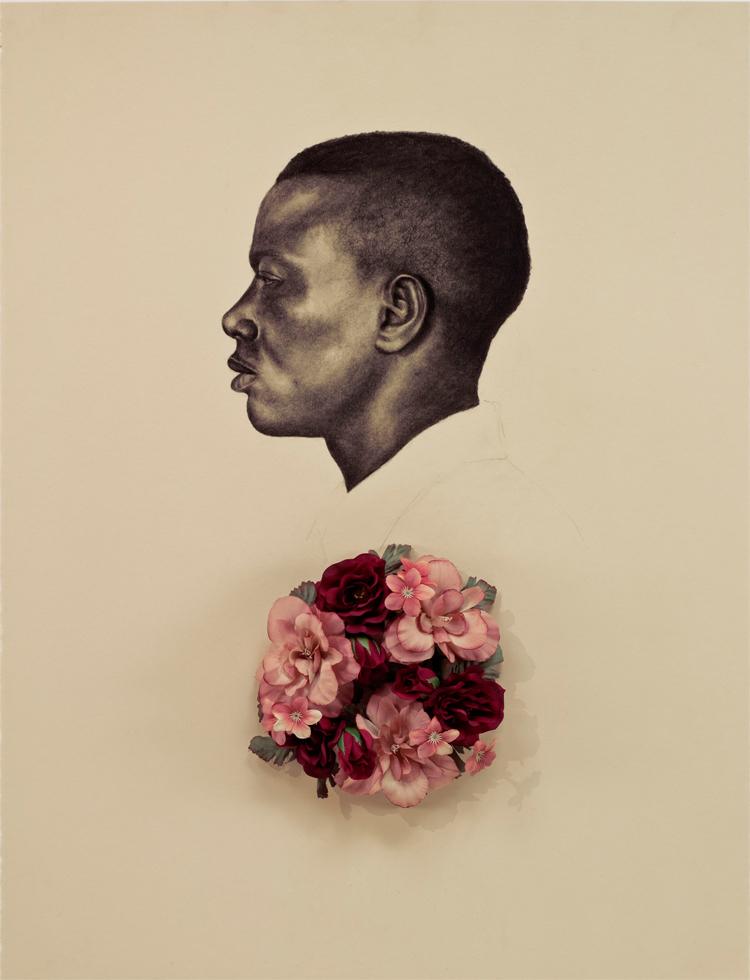The Sweet Scent of Magnolia
Exhibitions & Events
Whitfield Lovell: The Kin Series and Related Works is on view through January 8, 2017.

Whitfield Lovell, Kin VII (Scent of Magnolia), 2008. Conté on paper,silk flower wreath, 30 x 22 ½ x 3 in. Collection of Julia J. Norrell © Whitfield Lovell and DC Moore Gallery, New York
The subtitle of Whitfield Lovell’s Kin VII draws an immediate connection to “Strange Fruit,” a protest poem about lynching made famous by singer Billie Holiday in 1939. The startling pairing of a male figure with a red and pink bouquet of silk flowers is reminiscent of the song’s ironic contrast of the sweet scent of magnolias with the smell of burnin’ flesh. And yet, as with all his work, the artist seeks to open up many possible meanings depending on the perspective of the viewer.
As scholar Kevin Quashie has written, “Are these flowers from his room, a private and unusual explosion of color? The flowers he gave to a date or the ones he brought to a funeral? A sign of his desire to visit all the world’s spectacular gardens? … [Or] a more ominous reading—his killed body marked by a wreath … we can wonder if he loved pink and purple tones, without ignoring the possibility of racist violence. Whatever the story, the flowers are a surprise that interrupt the dominant narratives that might be ascribed to the profile of a black man of that age.”
Strange Fruit
Southern trees bear a strange fruit
Blood on the leaves and blood at the root
Black bodies swingin’ in the Southern breeze
Strange fruit hangin’ from the poplar trees
Pastoral scene of the gallant South
The bulgin’ eyes and the twisted mouth
Scent of magnolias sweet and fresh
Then the sudden smell of burnin’ flesh
Here is a fruit for the crows to pluck
For the rain to gather, for the wind to suck
For the sun to rot, for the tree to drop
Here is a strange and bitter crop
–original poem by Abel Meeropol, 1937



